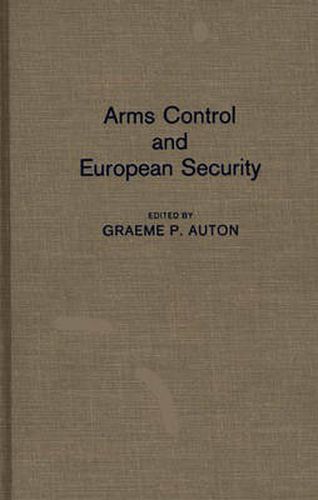Readings Newsletter
Become a Readings Member to make your shopping experience even easier.
Sign in or sign up for free!
You’re not far away from qualifying for FREE standard shipping within Australia
You’ve qualified for FREE standard shipping within Australia
The cart is loading…






In October 1987 on the eve of the Washington summit, the Committee on Atlantic Studies, a group of European and North American scholars established in 1964 to promote transatlantic dialogue, met in Toronto to discuss the implications of the new arms control for European security. This book is the fruit of that meeting. Incorporating subsequent developments up to Gorbachev’s December 1988 speech to the UN, it provides an assessment of arms control issues from a variety of European and North American perspectives. The contributors to this volume council caution, suggesting that while progress is possible, it will probably be slow. At a time when arms control arrived at a significant crossroads, the issues raised in Arms Control and European Security are of importance to both Europeans and Americans. This volume stresses the interplay of strategic and regional arms control. It includes analyses of nuclear, conventional and naval arms control questions and embodies a broader conception of arms control. The book links arms control to such political measures as confidence-building, conflict avoidance and superpower agreement to the neutrality of particular states.
$9.00 standard shipping within Australia
FREE standard shipping within Australia for orders over $100.00
Express & International shipping calculated at checkout
In October 1987 on the eve of the Washington summit, the Committee on Atlantic Studies, a group of European and North American scholars established in 1964 to promote transatlantic dialogue, met in Toronto to discuss the implications of the new arms control for European security. This book is the fruit of that meeting. Incorporating subsequent developments up to Gorbachev’s December 1988 speech to the UN, it provides an assessment of arms control issues from a variety of European and North American perspectives. The contributors to this volume council caution, suggesting that while progress is possible, it will probably be slow. At a time when arms control arrived at a significant crossroads, the issues raised in Arms Control and European Security are of importance to both Europeans and Americans. This volume stresses the interplay of strategic and regional arms control. It includes analyses of nuclear, conventional and naval arms control questions and embodies a broader conception of arms control. The book links arms control to such political measures as confidence-building, conflict avoidance and superpower agreement to the neutrality of particular states.